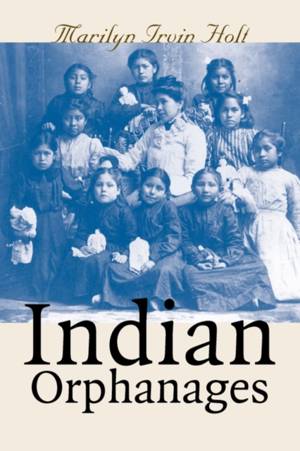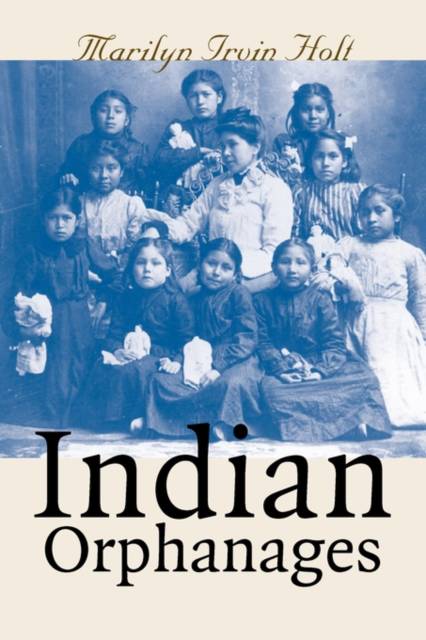
- Retrait gratuit dans votre magasin Club
- 7.000.000 titres dans notre catalogue
- Payer en toute sécurité
- Toujours un magasin près de chez vous
- Retrait gratuit dans votre magasin Club
- 7.000.0000 titres dans notre catalogue
- Payer en toute sécurité
- Toujours un magasin près de chez vous
Récompenses
Description
With their deep tradition of tribal and kinship ties, Native Americans had lived for centuries with little use for the concept of an unwanted child. But besieged by reservation life and boarding school acculturation, many tribes--with the encouragement of whites--came to accept the need for orphanages. The first book to focus exclusively on this subject, Marilyn Holt's study interweaves Indian history, educational history, family history, and child welfare policy to tell the story of Indian orphanages within the larger context of the orphan asylum in America. She relates the history of these orphanages and the cultural factors that produced and sustained them, shows how orphans became a part of native experience after Euro-American contact, and explores the manner in which Indian societies have addressed the issue of child dependency. Holt examines in depth a number of orphanages from the 1850s to1940s--particularly among the "Five Civilized Tribes" in Oklahoma, as well as among the Seneca in New York and the Ojibway and Sioux in South Dakota. She shows how such factors as disease, federal policies during the Civil War, and economic depression contributed to their establishment and tells how white social workers and educational reformers helped undermine native culture by supporting such institutions. She also explains how orphanages differed from boarding schools by being either tribally supported or funded by religious groups, and how they fit into social welfare programs established by federal and state policies. The Indian Child Welfare Act of 1978 overturned years of acculturation policy by allowing Native Americans to finally reclaim their children, and Holt helps readers to better understand the importance of that legislation in the wake of one of the more unfortunate episodes in the clash of white and Indian cultures.
Spécifications
Parties prenantes
- Auteur(s) :
- Editeur:
Contenu
- Nombre de pages :
- 336
- Langue:
- Anglais
Caractéristiques
- EAN:
- 9780700613632
- Date de parution :
- 13-09-01
- Format:
- Livre broché
- Format numérique:
- Trade paperback (VS)
- Dimensions :
- 153 mm x 228 mm
- Poids :
- 471 g

Les avis
Nous publions uniquement les avis qui respectent les conditions requises. Consultez nos conditions pour les avis.








